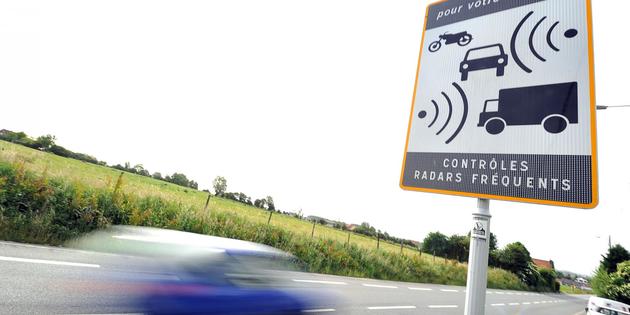 |
| I was told that there would be no math in this debate... |
Living in Paris provides many pleasures and distractions. Not the least of these is the ready availibility of places of great historical importance to remind one of the past, and aesthetic beauty to entice one in. Indeed, la Ville de Lumière offers many such windows in to the past - perhaps sufficiently many that one must actively seek to avoid them, lest one be inflicted with undesired learning.
Now, there is a comment attributed to George Santayana that those who cannot remember the past are condemned to repeat it.
For those unfamiliar with French history - a history that was somewhat violent and chaotic between the middle 18th and late 19th centuries - the so-called ancienne régime (the monarchists) - ruled in no small part by the divine right of kings. This priniciple invests the power of the monarch in the idea that God himself has bestowed the earthly power of rulership in the sovereign. Various of the Bourbon kings based their legitimacy on this idea, and thus over the centuries maintained a somewhat nervous peace between themselves and the Church.
This is near the centre of the famous novel Les Trois Mousquetaires, revealed in the intrigue between the Crown, the musketeers, and the eminence gris, Cardinal Richelieu.
Louis XIV summed this up with his famous quip "L'état c'est moi." (The State is me).
When the revolution inevitably came to Paris in 1789, of course the king was gone. But many turned their anger on the Church as well, seeing it as an enabling, corrupt power. As a result, many of the now famous religious sites in Paris were attacked. Some were destroyed. Others were repurposed. Few visitors to the Cathédral de Notre Dame de Paris are aware that it was converted, among other things, into a stable for horses; that the massive, neo-gothic Madeleine church became for a period "The Temple of Reason."
In their zeal, many of the revolutionaries went beyond merely reforming their society, replacing the cult of the Church with an odd cult of "reason" and natural laws. Though some moderation returned, and an uneasy truce between state and faith struck, France in a sense has never really fully reconciled this battle.
I am wondering if, in the US, we are headed to a similar sort of situation, with the increasingly shrill (and in my view, silly) battle between self-styled "scientists" and increasingly isolated and defensive self-appointed defenders of the faith. And if so, why?
A recent debate ocurred back in the States between Bill Nye ("The Science Guy," a pop-sciency entertainer) and Ken Ham, a writer and (I guess) prominent man among people who reject evolution and promote the literal interpretations of the Bible. I never heard of the latter, and my exposure to the former is his somewhat goofy appearances on Nickelodeon.
The 'debate' about various topics (the age of the earth, the origins of man, and other items that touch the erogenous zones of self-righteousness of both the religious and anti-religious) took place at the comical "Museum" of Creation Science in Kentucky. From what I gather, the place - replete with animatronic dinosaurs alongside people - is not unlike a sort of history museum, if Richard Hofstadter were Fred Flintstone.
There's been a lot of noise in the past few years back home about the creationists, or, their close cousins, the supporters of "Intelligent Design." Much of it breast-beating from people in places like the San Francisco Bay Area, New York, and Los Angeles, about how these flat-earthers in places like Kentucky (the home of the Flintstone version of the Smithsonian mentioned above) and Kansas are rapidly destroying public education in the US.
Nye himself stated that his reason for entering this discussion was his fear that Ham and the creationists are a serious threat to science education and our ability as a nation to innovate and compete.
I find this claim a bit hyperbolic.
I find this claim a bit hyperbolic.
How large a problem is it, really? Is the US falling behind China, Japan, Norway, and other nations in science (and maths, reading, writing, critical thinking...) because of people like Ham?
Undeniably, Ham and those who insist on ignoring the mountains of evidence have an impact. But I would respectfully offer that the bigger threats to our nation in terms of science education, innovation, and competitiveness lie elsewhere.
As I mentioned, if one looks at many putative boosters of science education, their commentaries are full of remarks about "the stupids" in places like Kansas. A book was written not long ago with the name What's the Matter with Kansas?, by a writer named Thomas Frank, who grew up in Kansas, but now lives in Washington, DC. When I lived in California, one could scarcely pass a week without hearing denigrating remarks about places like Kansas or South Carolina.
Well, if one looks at the most recent NAEP scores, California ranks 49th in the country in terms of science achievement. Who is worse? Why, the Disctrict of Columbia. Kansas is 23rd; Kentucky is 15th. In mathematics, California and the District again are in 49th and last place.
I could be wrong, but I am sceptical that California and DC are hot-beds of creationist activism.
There are real threats to the quality of education we get, but things that concern the anti-religious seem pretty far down the list. Does anyone actually believe that the centuries old argument about evolution is the main impediment to solid science education? A significant impediment?
That said, I wonder, what is really motivating the apparent zeal of those who are so fraught because of the threat of the Intelligent Design crowd? Is it really a desire to improve science education, or simply a reactionary rejection of religion? And if it's a rejection of religion, is it Christianity or religion more broadly? Because they are offended by the dogma of the church?
Or is it something else?
My suspicion is the latter. Many of the loudest people in the discussion seem to me not to support 'science' per se, but rather, are opposed to religion because they don't like religious people for reasons that have nothing to do with religion.
"Liberals" in the SF Bay area where I lived for the better part of two decades seemed particularly anti-Christian (and it's almost always anti-Christian; one seldom heard complaints about various religious practices of other faiths, an artefact perhaps of numbers more than anything else) because they see religiousness as part of a strongly southern, rural culture. The language in the discussion invariably invoked comments about "red state" people.
Religious faith is associated with the wrong sort of people, you see. Christianity is not hip, urban, or edgy. There is not an "app" for it. It's certainly not something one discusses over microbrewed beers at the Empire Tap Room, unless as the punch line to a snarky joke.
There strikes me a huge conflation of religion and politics, with one's view of faith as a sort of proxy for political fealty. Which is what happened in France in following the revolution. The anti-Church fervour was less about "reason" and "science" and more about politics.
Bill Nye is worried about science education, and with reason. Nye deserves praise for his efforts to draw attention to the problems facing science, and indeed, more general, eduxation. However, though his (undergraduate) degree is in mechanical engineering (he has no post-graduate credentials, which is odd for someone calling himself "The Science Guy"), I am sure he has sufficient mathematical education to see that many of the 'ideas' to fix education popular with his fellow travellers, such as Head Start, are demonstrable failures. I would suggest to Mr Nye that there are bigger problems.
And as I suspect, for many others, the argument about science and faith has little to do with either.


